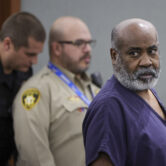(CN) — Since the parties first met to discuss the schedule for the high-profile trial of Elizabeth Holmes, the disgraced former founder and CEO of the now-defunct biotech firm Theranos, U.S. District Court Judge Edward Davila has pushed for an aggressive schedule.
Despite volumes of discovery and their attendant disputes, Davila wanted the trial to start late summer, early fall. The ambitious date was pushed back into October as concerns about summer vacations prompting a dwindling jury pool won out.
But that schedule is all but officially out because of the coronavirus, meaning the public will have to wait until next year for one of the most eagerly anticipated high-profile trials on the docket.
“I have a great reluctance to summon members of the community and invite them to sit in confined areas for lengthy periods of time when the public health situation so greatly affects them and their families,” Davila said.
With that, he agreed with both parties that carrying out a three-month trial with a prosecution witness-list already hovering at 170 people is simply not feasible as cases of coronavirus and deaths from Covid-19 continue to mount in California.
“In California, the pandemic has gotten worse,” said Lance Wade, attorney for Elizabeth Holmes. “Out of the four counties that would provide the jury pool, three of them are on the monitoring list.”
Wade has consistently opposed the aggressive schedule and said the current trial date of Oct. 27 is infeasible for a number of reasons. It’s not solely problems with finding and retaining jurors and then keeping them healthy for a protracted length of time during a complex and difficult trial.
Even the work leading up the trial, like serving potential witnesses with subpoenas is fraught in the time of Covid-19, he said.
“Even hearing a knock on the door during these times can be unsettling,” Wade said. “If the knock is from a process server it is particularly unsettling.”
Wade said the trial should start next April when hopes that a vaccine and other therapeutics capable of rendering the coronavirus into a less threatening disease may have materialized. A trial date set for April 2021 also allows for flu season to pass.
Officials at the U.S. Center for Disease Control recently said they anticipate difficult times in the fall as the flu season commences, with a greater burden on testing sites as people with all types of sickness will demand testing.
U.S. Attorney Robert Leach said April is too far out and suggested a February start date. Davila seemed to embrace that suggestion more readily.
The federal judge also made it clear he wants the work on settling discovery disputes and other trial preparation matters to continue apace even in light of a later trial date.
“Ideally what would happen is that all the work gets done so that we are waiting for a safe time to start and not waiting for the work to get done,” Davila said.
All sides pledged to move forward as though the trial were still set to go on Oct. 27.
The federal government has accused Holmes and her right-hand man, Ramesh Balwani, of engaging in multiple acts of fraud by misleading investors and customers regarding the effectiveness of a blood-testing technology that could purportedly give individuals lab results from a single drop of blood.
Holmes’ alleged exploits and fall from grace — Forbes recognized her as the world’s youngest self-made billionaire in 2014 — have fascinated the general public, and provided enough fodder for a book, podcast series and two competing documentaries.
Holmes and Balwani face two charges of conspiracy to commit wire fraud and nine separate counts of wire fraud that could carry a maximum of 20 years in prison and $2.7 million in fines if they are convicted. They are being tried separately.
Balwani is currently slated to be in court in April 2021.
Holmes founded Theranos in 2003 and soon attracted a who’s who of investors and backers. Washington heavyweights George Shultz, Henry Kissinger and Jim Mattis served on the company’s board.
The health technology entrepreneur's empire began to unravel in 2016 after John Carreyrou of the Wall Street Journal wrote the first of several articles questioning the validity of Theranos’ blood-testing technology.
Holmes, Balwani and others associated with the company proclaimed their blood tests could give reliable results to customers based on a prick of a finger. In fact, the test could only produce results related to a narrow range of health metrics and suffered from reliability issues.
When Carreyrou wrote his first article in October 2015, Holmes was worth an estimated $4.5 billion. By June of the following year, she was virtually bankrupt.
The company has since been liquidated.
Prosecutors say Holmes and Balwani, who were previously in a romantic relationship, spent years lying about the capability of their blood-testing technology, defrauding investors, board members and corporate partners like Safeway, Walgreens and the Cleveland Clinic.
Subscribe to Closing Arguments
Sign up for new weekly newsletter Closing Arguments to get the latest about ongoing trials, major litigation and hot cases and rulings in courthouses around the U.S. and the world.









